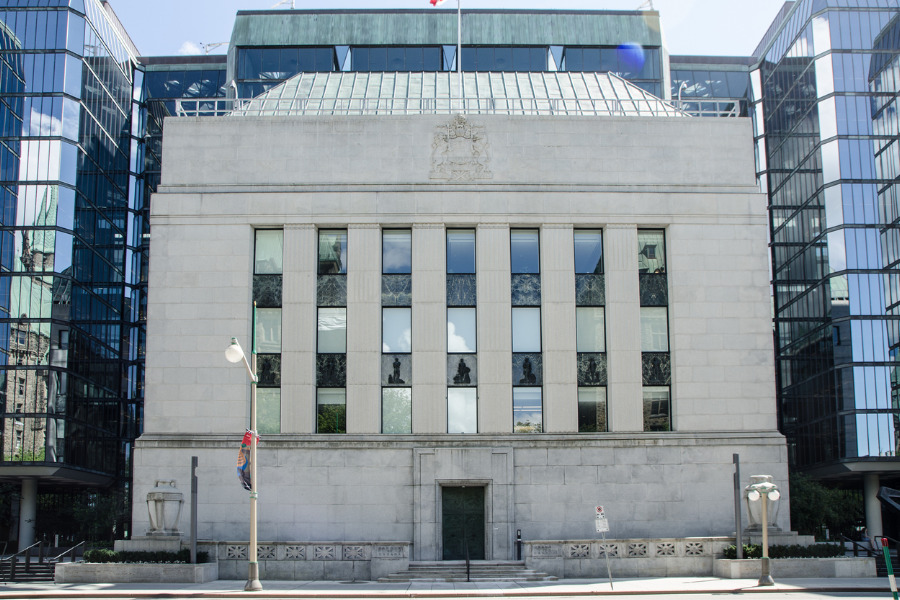

Global equities struggled on Wednesday as investors braced for more policy-tightening from the Federal Reserve, even as results from some of the biggest European and American companies hinted at a softening economy.
The European benchmark fell, snapping six days of gains. LVMH slumped as much as 4.5%, dragging the luxury-goods sector lower, after Europe’s biggest company provided further evidence of a slowdown in spending by wealthy consumers in the US. Miners underperformed after Rio Tinto Group reported a drop in first-half profit, driven mainly by fading demand from China. On the plus side, Rolls Royce Holdings Plc surged as much as 25% after the engine maker boosted profit guidance.
Nasdaq 100 index futures were under pressure after disappointing results from some top constituents. Microsoft Corp. slipped as much as 3.9%, having posted tepid sales growth and forecasting a slowdown in its cloud-computing business, while social media firm Snap Inc sank 19%. Google’s parent Alphabet Inc. however, jumped more than 7% after posting forecast-beating revenue. Meta Platforms Inc. rose almost 2% ahead of its own report later Wednesday.
“We are going to see some deceleration in corporate earnings, deceleration in economic growth, softening of demand, all of this will have a higher impact on equities,” Aarthi Chandrasekaran, director of investments at Shuaa Asset Management said on Bloomberg TV. Still, “the US economy is weakening but it’s not weakening enough to price in a full rate cut next year,” he said.
Hopes of a soft landing for the US economy were bolstered Tuesday by a consumer confidence index hitting a two-year high, suggesting also that policymakers aren’t done with their inflation fight yet. Later on Wednesday, the Fed is expected to raise rates by 25 basis points and swap contracts are factoring some additional rate increases by year-end as well.
The better growth outlook has lifted the Dow Jones Industrial Average for 12 days straight — the longest winning run in over six years — and a 13th day of gains will extend the record to the longest since 1987
Despite some disappointments, roughly 80% of US companies have thus far beaten profit estimates, and half of European names have done so, according to data compiled by Bloomberg.
More broadly too, growth is proving relatively resilient, prompting the International Monetary Fund to raise its outlook for the world economy. It now expects global gross domestic product to expand 3% in 2023 and while that’s slower than last year’s 3.5%, it’s faster than April’s 2.8% projection.
The better growth projections failed to lift Asian stocks however, as investors waited for signs that Chinese policymakers would follow through with their pledge to support the economy. Hong Kong-listed technology stocks lost more than 1% while broader Chinese shares also eased following Tuesday’s rally.
Meanwhile, a gauge of the dollar edged lower. Treasury 10-year yields slipped marginally while oil prices pulled back further from recent three-month highs.
Key events this week:
Some of the main moves in markets:
Stocks
Currencies
Cryptocurrencies
Bonds
Commodities
This story was produced with the assistance of Bloomberg Automation.
--With assistance from Brett Miller and Allegra Catelli.

Four of the Magnificent Seven will report this week.

Easing anxiety has seen the haven asset slide from record high.

Uncertainty remains challenging for Treasuries traders.

Move will raise concerns of inflationary impact of tariffs.

President says tariffs could see income tax ‘completely eliminated’ for some
RIAs face rising regulatory pressure in 2025. Forward-looking firms are responding with embedded technology, not more paperwork.
As inheritances are set to reshape client portfolios and next-gen heirs demand digital-first experiences, firms are retooling their wealth tech stacks and succession models in real time.
